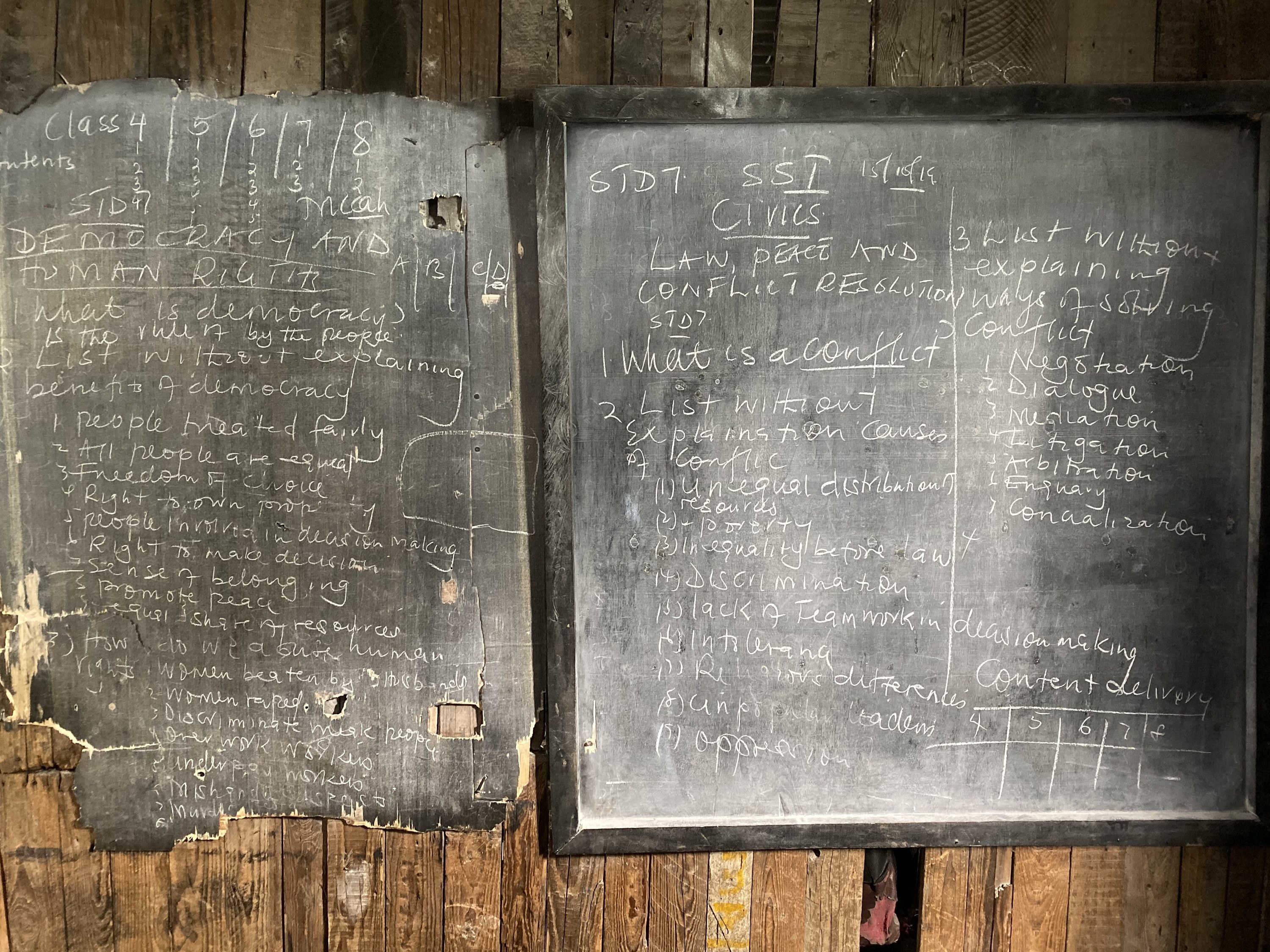
We were working at a school deep inside one of the largest slums of Nairobi. The school was tiny - a few dark classrooms with broken desks were squeezed between the corrugated metal walls of two slum buildings, a leaky tarp for a roof. A foul-smelling sewer ditch ran along the dirt floor of the school. Perhaps sixty students, from kindergarten to eighth grade (which is the end of schooling for most kids in Kenya), were at school that day. There was laughter, lots of shuffling as the kids tried to catch a glimpse of us, and as always, the sing-song voices of children reciting their lessons.
We finished with the younger kids and paused at the doorway of the teenage classroom. Students in threadbare uniforms were sitting on rickety wooden benches, mud at their feet, notebooks in hand, a bare lightbulb hanging from the ceiling - lucky to have electricity that day. The little kids always greet us with smiles and bouncy hand-holding. Not so for the older students- there is a wariness, and weariness, in their eyes - dimmed by the realities of a slum life that I will never see or affect, despite all my efforts at the school.
Still, politely, we were invited in. Standing room only, our backs against rusted metal walls. It was a civics class. Then I saw the broken blackboard- filled with questions and answers from the teacher’s lesson: “DEMOCRACY AND HUMAN RIGHTS.”

It astounded me: In this broken-down school, in this impoverished neighborhood borne of generations of systematic oppression, how was anybody even thinking at this level? How can they know about democracy? Yet the students’ answers were there, reflecting both the highest levels of philosophy and the worst acts of crime - the crimes noted with a matter-of-factness that only could come from familiarity. “What??” I was thinking - this is higher education stuff, to articulate a governing ideal, describe its failings in reality, identify the source of the problem, and create the path toward a solution - and it’s written right here on the blackboard in this slum? I was awed to think of the potential - and the enormity of challenge - for these students of Civics.
I’ll share the words on that blackboard with you. I keep a copy of this photo on my desktop. They are profound and wise and innocent and true. This is a description of their world - and ours - and a template for understanding and for creating a path back toward our democratic ideals.

And here’s my truth: my surprise at the possibility that poor, oppressed African children can think clearly about democracy reveals my own prejudice- a fault I honestly did not see in myself until today. I now understand that those who live with societal disparity are vastly more able to describe both the failings, and the pathways toward fulfillment, of our democratic ideals. I’m the one who has lost sight of the importance of democracy in action in our daily lives. I see now that it is my responsibility to keep the promises of democracy at the forefront of my life work, and to guard its tenets for all others. I’m the one who isn’t thinking at the right level- and that’s because of my privilege, not my oppression. I’m grateful for this chance to do better.
The Blackboard Civics Lesson: Democracy and Human Rights
What is democracy?
It is the rule by the people.
List the benefits of democracy:
1. People treated fairly
2. All people are equal
3. Freedom of choice
4. Right to own property
5. People involved in decision making
6. Right to make decisions
7. Sense of belonging
8. Promote peace
9. Equal share of resources
How do we abuse Human Rights?
1. Women being beaten by husbands
2. Women raped
3. Discriminate weak people
4. Overwork workers
5. Underpay workers
6. Mishandled suspects
7. Murder
Law, Peace and Conflict Resolution
What is a Conflict?
1. Unequal distribution of resources
2. Poverty
3. Inequality before Law
4. Lack of teamwork and decision making
5. Intolerance
6. Religious differences
7. Unpopular Leaders
8. Oppression
List ways of Solving Conflict:
1. Negotiation
2. Dialogue
3. Mediation
4. Litigation
5. Arbitration
6. Inquiry
7. Conciliation
The societal crisis we all face is a profound reason to share this story. I’ll post the next chapter - and many other stories- on our blog.
With Love, Ann
www.onegoodturn.org

